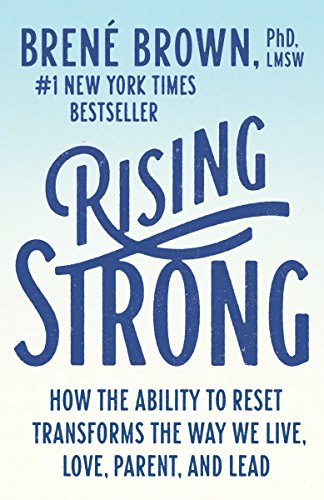Rising Strong: How the Ability to Reset Transforms the Way We Live, Love, Parent, and Lead
amazon.com
Rising Strong: How the Ability to Reset Transforms the Way We Live, Love, Parent, and Lead

Get honest about the stories we’re making up about our struggle, then challenge these confabulations and assumptions to determine what’s truth, what’s self-protection, and what needs to change if we want to lead more wholehearted lives. THE REVOLUTION Write a new ending to our story based on the key learnings from our rumble and use this new,
... See moreWhat are the consequences of putting down the weapons and taking off the armor?
I’m hurt, feeling uncomfortably vulnerable, or feeling shame.
I don’t normally use terms like consciousness and the unconscious. I believe in the concepts, but those words don’t feel very accessible or practical—they just don’t resonate with or speak to me. I prefer awake or aware.
You can’t skip day two. You can’t skip day two. You can’t skip day two. Where is the messy middle? Where is Act 2?
“form-storm-norm-perform” cycle. When a group or team first comes together (form), it’s often rocky for a time while members figure out the dynamics (storm). At some point, the group finds its groove (norm) and starts to make headway (perform).
Day two, or whatever that middle space is for your own process, is when you’re “in the dark”—the door has closed behind you. You’re too far in to turn around and not close enough to the end to see the light. In my work with veterans and active members of the military, we’ve talked about this dark middle. They all know it as “the point of no
... See more“Show me a woman who can hold space for a man in real fear and vulnerability, and I’ll show you a woman who’s learned to embrace her own vulnerability and who doesn’t derive her power or status from that man.
“Grace will take you places hustling can’t.”